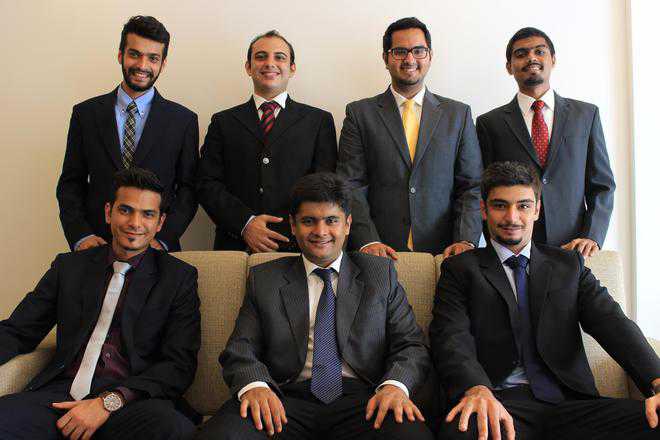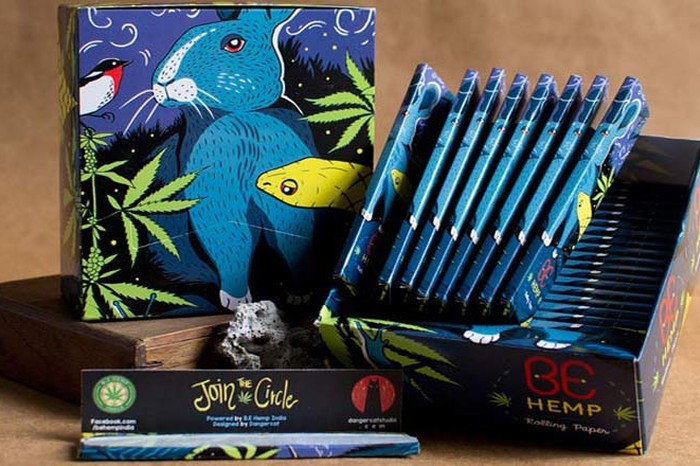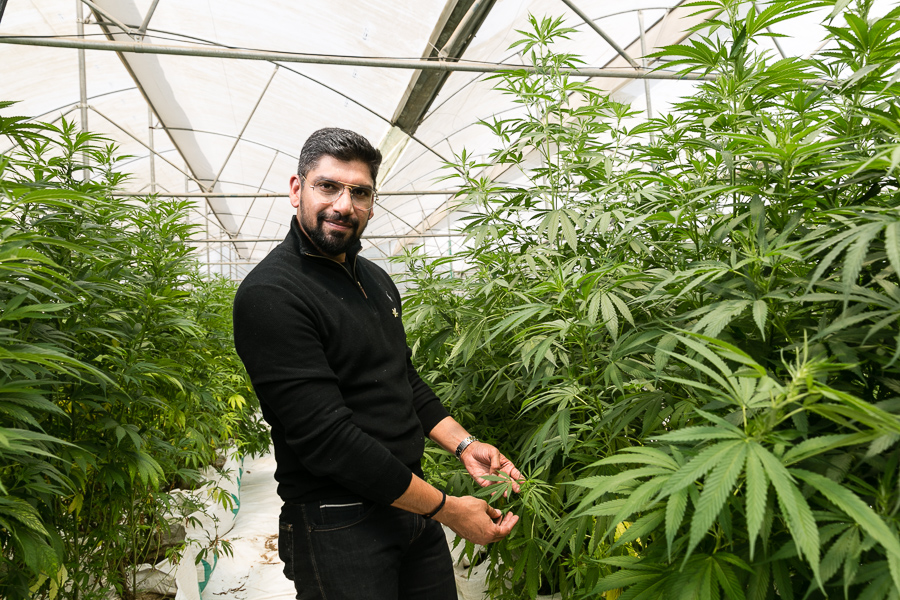From Bollywood films to bumper stickers of Lord Shiva smoking a chillum on auto rickshaws and cars, the hipster-friendly infamous cannabis plant has found repeated references in India’s pop culture.
From Bollywood films to bumper stickers of Lord Shiva smoking a chillum on auto rickshaws and cars, the hipster-friendly infamous cannabis plant has found repeated references in India’s pop culture. Need we mention the holy thandaai and bhaang pakoras served as prasad on Holi and Shivratri?
Between activism-fuelled slogans of ‘legalise cannabis’, mainly on Facebook, and scientific research on its potential uses, lies a territory of opportunities a few tread on. While the faint-hearted succumb to the reputation of cannabis as a narcotic substance, there are a few who dare to look beyond, and at its economic benefits.
In November 2015, Uttarakhand allowed cannabis cultivation for industrial use, and last month, Microsoft entered the Cannabis industry. Here’s the fast-growing, hemp industry of India, and the three start-ups that are powering it: BOHECO (Bombay Hemp Company), B.E. Hemp India Ltd, and Hempsters.
Bombay Hemp Company (BOHECO)
Formed on January 19, 2013, BOHECO is the brainchild of seven college friends from Mumbai who wanted to do “something out of the box”. The company deals in hemp handloom, and edible hemp seed and its oil. According to co-founder Yash P. Kotak, BOHECO wants to revolutionise hemp cultivation in India. “Although 60 per cent of India’s workforce is employed in agriculture, it contributes roughly 16 per cent to the GDP. That’s a huge mismatch. We figured since there is a problem, there must be an opportunity. Hence, BOHECO.” Yash founded the company with Avnish Pandya, Jahan Peston Jamas, Sumit Shah, Delzaad Deolaliwala, Sanvar Oberoi, and Chirag Tekchandaney.
A vacation by Jahan to Australia’s Margaret River, a town known for its hemp products, sparked the idea behind the company. “From shirts to surfboards, everything there was made from hemp. This got us thinking,” Yash says.
However, given the laws on hemp, and in its trade, it was tightrope walk. “We realised there was a need to start an industry, not just a company,” Yash says.
“The Council for Scientific and Industrial Research is researching the potential uses of cannabis, even pharmaceutical. There’s a clear provision for growing hemp with less than .3 per cent THC content (the intoxicating part of marijuana). Cannabis sativa is one such variant. It has no THC, is fibrous, and has over 25,000 proven uses pertaining to basic needs like food, clothing, shelter and health,” says Yash, BOHECO.
BOHECO sources hemp from Uttarakhand and Odisha, and claims to have received support from the Centre and state governments. “According to Sections 8 and 14 of the NDPS Act, there is no ban on cultivation of cannabis for seed and stock to be applied in the industrial or horticultural sectors,” says Jahan, director of strategy and collaborations, BOHECO. “However, the biggest loophole is lack of a standard seed developed and approved by a government body for industrial cultivation,” he adds.
B.E. Hemp India
Bangalore-based B.E. Hemp India was founded by Elston Rahul Menezes, Sayanthan Halder, and Benson Martis. It already has a strong presence on Facebook and sells products mainly made from hemp fibre.
“We had been working on the venture for over four years, but formed the company in November last year,” says Elston. B.E. Hemp sources hemp fibre from Nepal. The Himalayan country, he says, has a thriving hemp cottage industry and that there is a government-run hemp factory in Pokhra. “We source hemp fibre from China, Rajathan (Jaipur), and Himachal,” he adds.
B.E. Hemp India sells rolling papers, hemp notebooks, decorative items, accessories, harem pants and even dresses made from hemp fibre. “People only know one aspect of this plant, though it has multiple uses. We don’t advocate smoking it, because smoking is injurious to health. However, cannabis sativa has several uses, which cannot be discounted,” he says.
Hempsters
Rohan Vardhan and his co-partners, Hridaynag, and Abhishek Sajjala, founded Hempsters in April 2015. If you are going to raise that judgmental brow questioning what they do, we suggest you go through the list of their products. The Hyderabad-based company is India’s reply to the UK-based company The Body Shop. Hempsters make soaps, shower gels, shampoos, hand wash, and face wash. All have one thing in common: hemp. “We had heard about BOHECO and The Body Shop using hemp seed oil, so we decided to make hemp-based products too,” says Rohan. Hempster sources hemp seed oil from e-retailers. Though its products contain hemp oil, they were given the go-ahead by the Ministry of AYUSH. “We are not looking to market our products as ayurvedic,” adds Rohan.
Legal talk
Enforced in 1985, the NDPS Act banned the production and sale of cannabis resin and flowers, but permitted the use of leaves and seeds, allowing the states to regulate the latter. In 2015, the first organised efforts to re-legalise cannabis in India appeared with medical marijuana conferences being held in Bengaluru, Pune, Mumbai and Delhi by the Great Indian Legalisation Movement.
Romesh Bhattacharji, a former narcotics commissioner of India, says, “The idea of the formal establishment of a legitimate hemp and cannabis ecosystem revolving around prudent policy, scientific efficacy and broad social as well as agriculture-based acceptance is the only path to be pursued and encouraged by current and former policymakers and bureaucrats with the relevant government experience.”
“A legislation is required with respect to cannabis,” says Ganesh Prasad, legal advisor to BOHECO.
- By Amarjot Kaur





